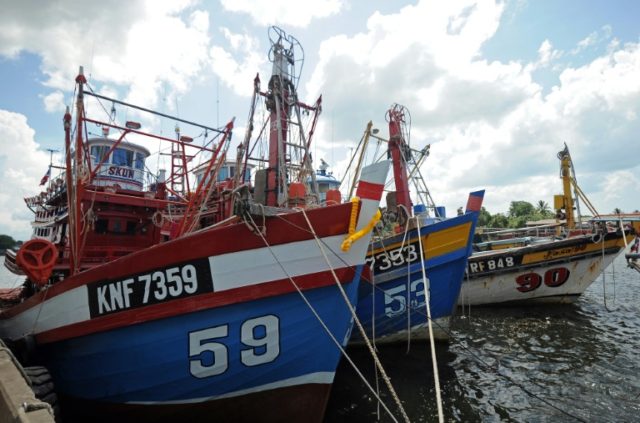Bangkok (AFP) – Abysmal labour conditions in Thailand’s seafood industry have started to improve, according to a new UN study describing rare bright spots in a multi-billion dollar sector notorious for its abuses.
Thailand is the world’s fourth largest seafood exporter but its supplier status has been badly tainted by reports of slave labour and trafficking among the mainly migrant work force staffing the kingdom’s fleets.
In 2015 the EU threatened to ban Thai seafood products over labour violations and rampant illegal fishing, sending the ruling junta scrambling to clean-up the lucrative industry’s image.
A new report by the EU and the UN’s International Labor Organization (ILO) published Wednesday said progress had been made in some areas but cautioned that labour abuses persist.
“A lot has been done, but more needs to be done,” Luisa Ragher, charge d’affaires with the EU delegation to Thailand, said at a presentation of the findings in Bangkok.
The study surveyed 434 workers in 11 provinces in March and April 2017, split almost evenly between fishing crews and those who work in onshore processing plants.
On the plus side, it found that there were fewer reports of physical violence compared to a survey about four years ago.
The survey also showed that average wages had increased and that 43 percent of employees reported having written contracts.
But marring the progress were findings that other “unsatisfactory labour practices” and abuses continued.
In the fishing sector almost two-thirds of respondents said they had no day off per week, while roughly a quarter had pay withheld by boat owners, sometimes having to wait more than 12 months to receive it.
There also appeared to be a large wage gap between genders, with 52 percent of women interviewees saying they were paid below the legal minimum wage.
More than half of those surveyed reported experiencing at least one aspect of forced labour, which the study defined as including intimidation and threats, retention of identity documents, abusive working conditions and excessive overtime.
The report is part of a three-year project to assess progress and make recommendations to the Thai government.
Thailand’s ruling junta has trumpeted a slew of crackdowns and reforms of the industry since its 2014 power grab.
But rights groups have warned that much of the efforts are superficial or short-lived.
In January, Human Rights Watch said reforms have focused on tackling illegal fishing but done little to curb worker exploitation, with ship inspections for labour abuses “largely a theatrical exercise for international consumption”.

COMMENTS
Please let us know if you're having issues with commenting.